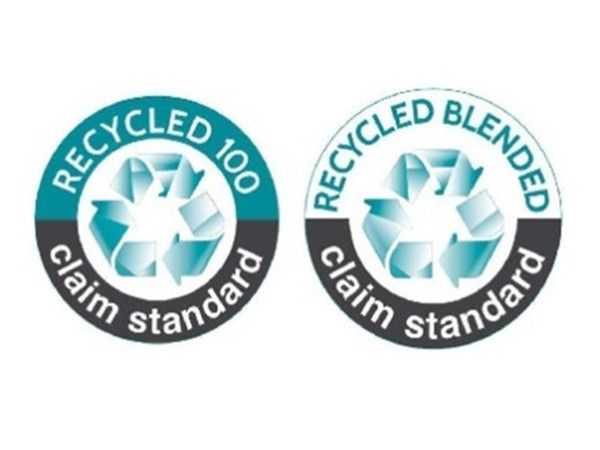[sort:name]
[sort:subname] {/pboot:sort}联系我们

RCS, the full name of recycled content declaration standard in English, is another RecycledClaimedStandard launched by TE Textile Trading Organization in 2013. This standard is applicable to all companies (units) that produce or sell RCS products. This standard includes processing, manufacturing, packaging, labeling, and recycled materials with at least 5% content in all products sold and used. Relevant material collection points and material collection points do not require RCS certification, but it must be stated that they must meet a series of specification requirements listed in this standard, and agree to random inspection by certification bodies on this basis. The certified product range is based on the concept of textile products, but the certification scope is not limited to the textile products industry. In this case, the outsourced production units (processing part or all of the final products) must comply with the requirements of RCS standards.
The difference between GRS-GlobalRecycledStandard and the same series is that:
1. GRS is suitable for products with recycled raw materials content between 20% and 100%;
2. GRS has increased the requirements of environmental and social responsibility on the basis of RCS requirements;
3. Different certification marks;
4. GRS is an advanced version of RCS: RCS products can use raw materials certified by GRS, but GRS products cannot use raw materials of RCS.
5. GRS has requirements for chemicals used in the process, but RCS does not.
Standard RCS certification process for recycling content declaration:
The purpose of RCS certification is to ensure that the product contains recycled materials. Make consumers believe that the products they buy contain recycled materials, because they choose products made of recycled materials. Passing this certification will help to increase the use of recycled materials and reduce the amount of waste. The standard used by RCS is the regulatory requirements of CCS. As far as it is concerned, CCS is the general standard of supply chain. This standard contributes to the consistency and efficiency of the authentication process. Once a company has been certified to meet the requirements of CCS standards, the supply chain requirements are all based on CCS, reducing duplicate certification.
What is the process of recycling content declaration standard RCS?
1. Application: After receiving the officially signed application form and checking it correctly, the auditing organization will set up a project to evaluate the feasibility of certification and related expenses.
2. Contract: After evaluating the application form, the auditing organization will quote according to the application situation, and the estimated expenses will be detailed in the contract, and the applicant will confirm and sign the contract as soon as it is received.
3. Registration: After receiving the signature of the contract, the audit institution will register the applicant and issue the registration number.
4. Payment: After the audit institution issues the quotation contract, the enterprise needs to pay.
5. Audit: After confirming that the necessary system documents have been sorted out, the audit institution will arrange auditors to go to the site for audit, and a formal report will be issued within two weeks after the audit. The audit institution will issue the certificate within two weeks after receiving the official report. If there are nonconformities during the audit, different measures will be taken according to the actual situation, and all nonconformities will be corrected within the specified time before issuing the certificate.
The biggest difference between GRS certification and RCS certification lies in recycling content, environmental and social audit.
GRS certification recovery content needs to reach more than 20%, and RCS certification recovery content only needs more than 5%; GRS needs environmental and social audit, while RCS does not.
Whether factories and enterprises do GRS certification or RCS certification depends on the needs of customers and the conditions of products themselves.
Introduction of RCS recovery statement standard certification
The purpose of RCS certification is to ensure that products contain recycled materials, but consumers believe that the products they buy contain recycled materials, because choosing products made of recycled materials will help to increase the use of recycled materials and reduce the amount of waste. The standard used by RCS is the regulatory requirement of CCS.
Advantages of CSS standard: CCS is the general standard of supply chain. This standard contributes to consistency and efficiency in the authentication process. Once a company has been certified to meet the standard requirements of CCS, all other requirements in the supply chain are based on CCS, reducing duplicate certification.
List of documents to be prepared for standard RCS of recycling content declaration:
1.RCS production management manual 2.RCS system plan 3.RCS product specification table 4. Business license, tax registration certificate and organization code.
5. Production flow chart, 6. Workshop and warehouse area plan (including machine arrangement and equipment list) 7. Supplier evaluation record.
8.RCS operation training record 9.RCS raw material procurement summary table 10.RCS raw material acceptance inspection record
11.RCS production risk assessment and control measures 12.RCS production traceability record (simulation)
relevant documents
The following additional document Sareconsideredpartherecycledclaimsandard, Andarelybinding: The following attached documents are regarded as part of the "Declaration Standard for Recovered Content" and are fully binding:
ContentClaimStandard- content declaration standard
ContentclaimSTANDARD Implementation Manual-Implementation Manual of Content Declaration Standard RecycledClaimStandard- Recovery Content Declaration Standard
RCSLogoUseandClaimsGuide-RCS trademark use and declaration guide
Accreditation and Certification Procedure FortextileExchangesta-Standard Review and Certification Procedure of Textile Exchange
PolicyandTemplateForissuing Certificates of Compliance (SCS)-Policies and templates for issuing compliance certificates (SC).
ScopeCertificateTemplate- scope certificate template
PolicyandTemplateForlSuing Transaction Certificates (TCS)-Policy and Template for Issuing Transaction Certificates (TC) TransactionCertificate Template-Transaction Certificate Template
TextileExchangeAcceptedEquivalentStandards-Equivalent Standards Accepted by Textile Exchange
RCS, the full name of recycled content declaration standard in English, is another RecycledClaimedStandard launched by TE Textile Trading Organization in 2013. This standard is applicable to all companies (units) that produce or sell RCS products. This standard includes processing, manufacturing, packaging, labeling, and recycled materials with at least 5% content in all products sold and used. Relevant material collection points and material collection points do not require RCS certification, but it must be stated that they must meet a series of specification requirements listed in this standard, and agree to random inspection by certification bodies on this basis. The certified product range is based on the concept of textile products, but the certification scope is not limited to the textile products industry. In this case, the outsourced production units (processing part or all of the final products) must comply with the requirements of RCS standards.
The difference between GRS-GlobalRecycledStandard and the same series is that:
1. GRS is suitable for products with recycled raw materials content between 20% and 100%;
2. GRS has increased the requirements of environmental and social responsibility on the basis of RCS requirements;
3. Different certification marks;
4. GRS is an advanced version of RCS: RCS products can use raw materials certified by GRS, but GRS products cannot use raw materials of RCS.
5. GRS has requirements for chemicals used in the process, but RCS does not.
Standard RCS certification process for recycling content declaration:
The purpose of RCS certification is to ensure that the product contains recycled materials. Make consumers believe that the products they buy contain recycled materials, because they choose products made of recycled materials. Passing this certification will help to increase the use of recycled materials and reduce the amount of waste. The standard used by RCS is the regulatory requirements of CCS. As far as it is concerned, CCS is the general standard of supply chain. This standard contributes to the consistency and efficiency of the authentication process. Once a company has been certified to meet the requirements of CCS standards, the supply chain requirements are all based on CCS, reducing duplicate certification.
What is the process of recycling content declaration standard RCS?
1. Application: After receiving the officially signed application form and checking it correctly, the auditing organization will set up a project to evaluate the feasibility of certification and related expenses.
2. Contract: After evaluating the application form, the auditing organization will quote according to the application situation, and the estimated expenses will be detailed in the contract, and the applicant will confirm and sign the contract as soon as it is received.
3. Registration: After receiving the signature of the contract, the audit institution will register the applicant and issue the registration number.
4. Payment: After the audit institution issues the quotation contract, the enterprise needs to pay.
5. Audit: After confirming that the necessary system documents have been sorted out, the audit institution will arrange auditors to go to the site for audit, and a formal report will be issued within two weeks after the audit. The audit institution will issue the certificate within two weeks after receiving the official report. If there are nonconformities during the audit, different measures will be taken according to the actual situation, and all nonconformities will be corrected within the specified time before issuing the certificate.
The biggest difference between GRS certification and RCS certification lies in recycling content, environmental and social audit.
GRS certification recovery content needs to reach more than 20%, and RCS certification recovery content only needs more than 5%; GRS needs environmental and social audit, while RCS does not.
Whether factories and enterprises do GRS certification or RCS certification depends on the needs of customers and the conditions of products themselves.
Introduction of RCS recovery statement standard certification
The purpose of RCS certification is to ensure that products contain recycled materials, but consumers believe that the products they buy contain recycled materials, because choosing products made of recycled materials will help to increase the use of recycled materials and reduce the amount of waste. The standard used by RCS is the regulatory requirement of CCS.
Advantages of CSS standard: CCS is the general standard of supply chain. This standard contributes to consistency and efficiency in the authentication process. Once a company has been certified to meet the standard requirements of CCS, all other requirements in the supply chain are based on CCS, reducing duplicate certification.
List of documents to be prepared for standard RCS of recycling content declaration:
1.RCS production management manual 2.RCS system plan 3.RCS product specification table 4. Business license, tax registration certificate and organization code.
5. Production flow chart, 6. Workshop and warehouse area plan (including machine arrangement and equipment list) 7. Supplier evaluation record.
8.RCS operation training record 9.RCS raw material procurement summary table 10.RCS raw material acceptance inspection record
11.RCS production risk assessment and control measures 12.RCS production traceability record (simulation)
relevant documents
The following additional document Sareconsideredpartherecycledclaimsandard, Andarelybinding: The following attached documents are regarded as part of the "Declaration Standard for Recovered Content" and are fully binding:
ContentClaimStandard- content declaration standard
ContentclaimSTANDARD Implementation Manual-Implementation Manual of Content Declaration Standard RecycledClaimStandard- Recovery Content Declaration Standard
RCSLogoUseandClaimsGuide-RCS trademark use and declaration guide
Accreditation and Certification Procedure FortextileExchangesta-Standard Review and Certification Procedure of Textile Exchange
PolicyandTemplateForissuing Certificates of Compliance (SCS)-Policies and templates for issuing compliance certificates (SC).
ScopeCertificateTemplate- scope certificate template
PolicyandTemplateForlSuing Transaction Certificates (TCS)-Policy and Template for Issuing Transaction Certificates (TC) TransactionCertificate Template-Transaction Certificate Template
TextileExchangeAcceptedEquivalentStandards-Equivalent Standards Accepted by Textile Exchange
 {/pboot:if}
{/pboot:if}